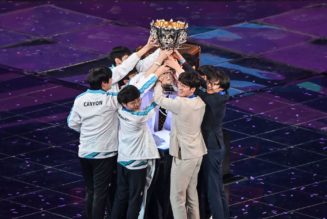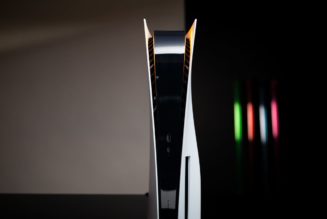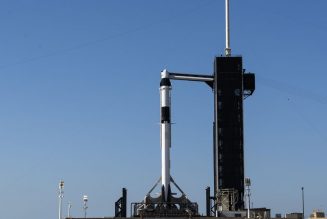/cdn.vox-cdn.com/uploads/chorus_asset/file/24145502/226378_Twitter_Risk_Elon_Musk_Spot_WJoel.png)
Less than 24 hours after completing his $44 billion acquisition of Twitter, Elon Musk decided to change its homepage.
He requested that logged out users visiting Twitter.com be redirected to the Explore page that shows trending tweets and news stories, according to employees familiar with the matter who requested anonymity to speak without the company’s permission. Before, visiting Twitter’s homepage while logged out showed only a sign-up form, encouraging the creation of an account to view tweets. Musk’s directive, which was implemented late Friday, required VP involvement to override a code freeze put in place to prevent rogue staffers from making changes during the takeover process.
Though Musk didn’t widely articulate a reason for the change, to the employees who observed it, the message was clear: no more sacred cows. Inside the old Twitter, such a decision would have been fought over between teams for weeks. But this was the new Twitter. As a former executive told me: “That’s definitely one way to make it clear you’re in charge now.”
“That’s definitely one way to make it clear you’re in charge now”
Changing Twitter’s homepage is an example of how Musk, less than three days into his reign as “Chief Twit,” has started to swiftly change the company from the inside out. Even as he is preparing to lay off a significant portion of employees in the coming days, he has fast-tracked changes to Twitter itself, such as ordering that its paid subscription feature, Super Follows, be renamed to “Subscriptions” in a rushed update to Twitter’s mobile app. He has also discussed using Starlink, his satellite-based internet service at SpaceX, to make Twitter available in countries where it is currently hard to access.
Employees tasked with completing tasks from Musk have worked late into the night and the weekend while their managers draw up lists of team members to lay off. When Musk fired ex-CEO Parag Agrawal and other top execs last week, he did so “for cause” in an attempt to avoid paying out the tens of millions in stock they would otherwise receive, said a person familiar with the situation. Now employees are fearing that layoffs will begin before November 1st, when a significant percentage of them are set to receive stock grants paid out in cash at $54.20 a share. (The Information first reported that Musk fired the Twitter execs for cause.)
Meanwhile, Musk is relying on his inner circle to help him better understand what he just bought. He has been holed up in a sectioned-off area of Twitter’s San Francisco headquarters with a fleet of Teslas parked outside and new security guards manning the entrance. Dozens of people from his family office, other companies, and social circles have been added to Twitter’s employee directory and given company email addresses, according to employees and internal correspondence seen by The Verge.
They include Alex Spiro, Musk’s personal lawyer who is acting as Twitter’s de facto general counsel; Andrew Musk, his relative who works for his brain-interface startup Neuralink; Jehn Balajadia, COO of The Boring Company; David Sacks, an influential political donor and fellow “PayPal mafia” member; Jason Calacanis, a VC and longtime friend of Musk’s; and Sriram Krishnan, a former Twitter product leader and current VC at Andreessen Horowitz who is also friends with Musk. (The New York Times first reported that some of these people were meeting with Twitter employees.)
Kayvon Beykpour, Twitter’s former head of product who was fired by Agrawal in May, was also seen in the office last Friday, sparking rumors that he could return. Complicating that idea is the fact that Twitter’s current head of product, Jay Sullivan, is still at the company.
“Twitter will be laser-focused on identity and safety in the coming weeks”
On Saturday, Calacanis, who co-hosts the popular All-In podcast that Musk was a guest on earlier this year, tweeted that he had met with Yoel Roth, Twitter’s head of safety, and “was impressed with his dedication to & perspective on security issues.” The tweet quoted a thread by Roth detailing how the company was banning accounts involved in a “trolling campaign” of tweeting racial slurs. “Twitter will be laser-focused on identity and safety in the coming weeks,” Calacanis followed up in another tweet.
Musk’s first order of business has been figuring out who he wants to keep in Twitter’s engineering organization. On Friday, engineers were asked to print out their recent code contributions from the last 30 to 60 days and bring them to be reviewed by Musk and Tesla engineers. They were then quickly told to shred their print outs and show the code on their computers instead, as first reported by Platformer’s Casey Newton. Some engineers have been glued to a Twitter account that tracks the whereabouts of Musk’s private jet, expecting him and the Tesla engineers to visit the company’s New York City office on Monday to continue code reviews.
Managers have been told that the purpose of the reviews is for Musk to see who can work at the speed and efficiency he demands, and that he wants to weed out engineering managers who do not regularly write code. “Managers in software must write great software or it’s like being a cavalry captain who can’t ride a horse!” he tweeted in May.
Twitter’s communications department, which has stopped responding to press inquiries since Musk’s takeover, didn’t reply to a request for comment for this story.
Do you know more about what’s going on inside Twitter? If so, I’d love to chat confidentially. You can reach me via email: alex.heath@theverge.com, through the contact form on my Linktree, or through Twitter DM @alexeheath. Then we can set up a secure thread on Signal.









